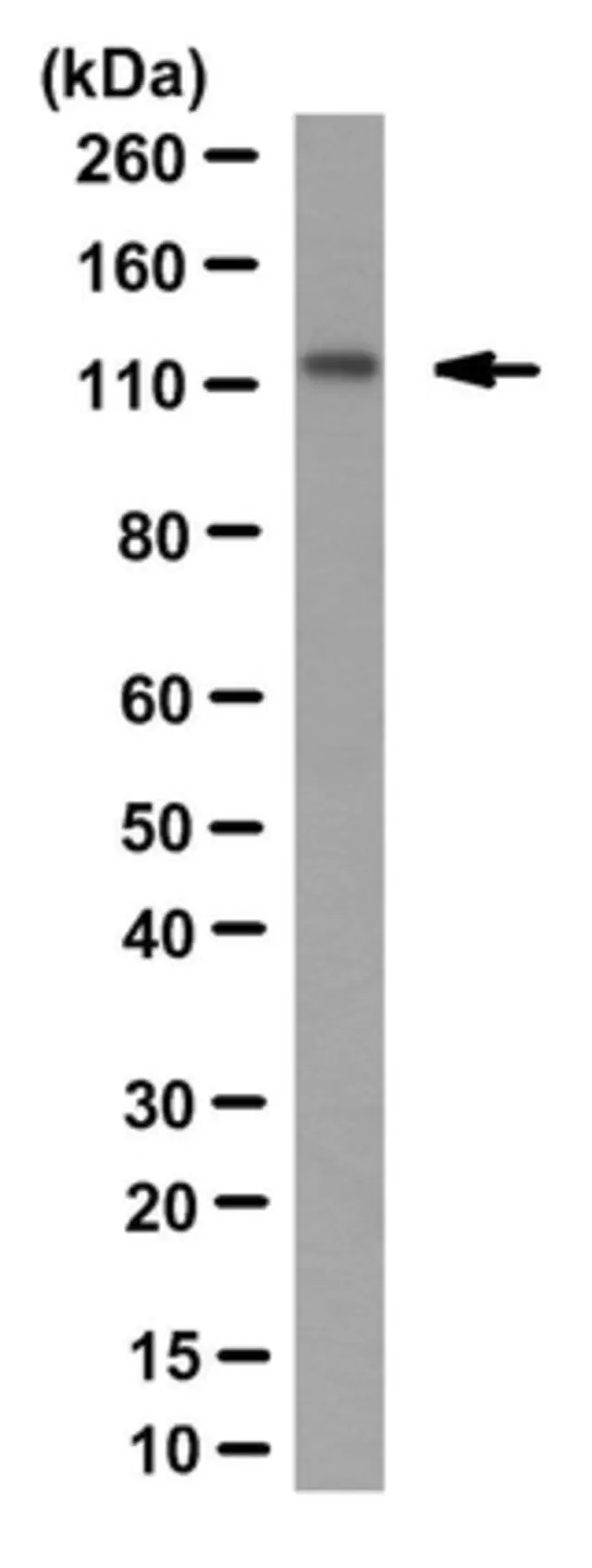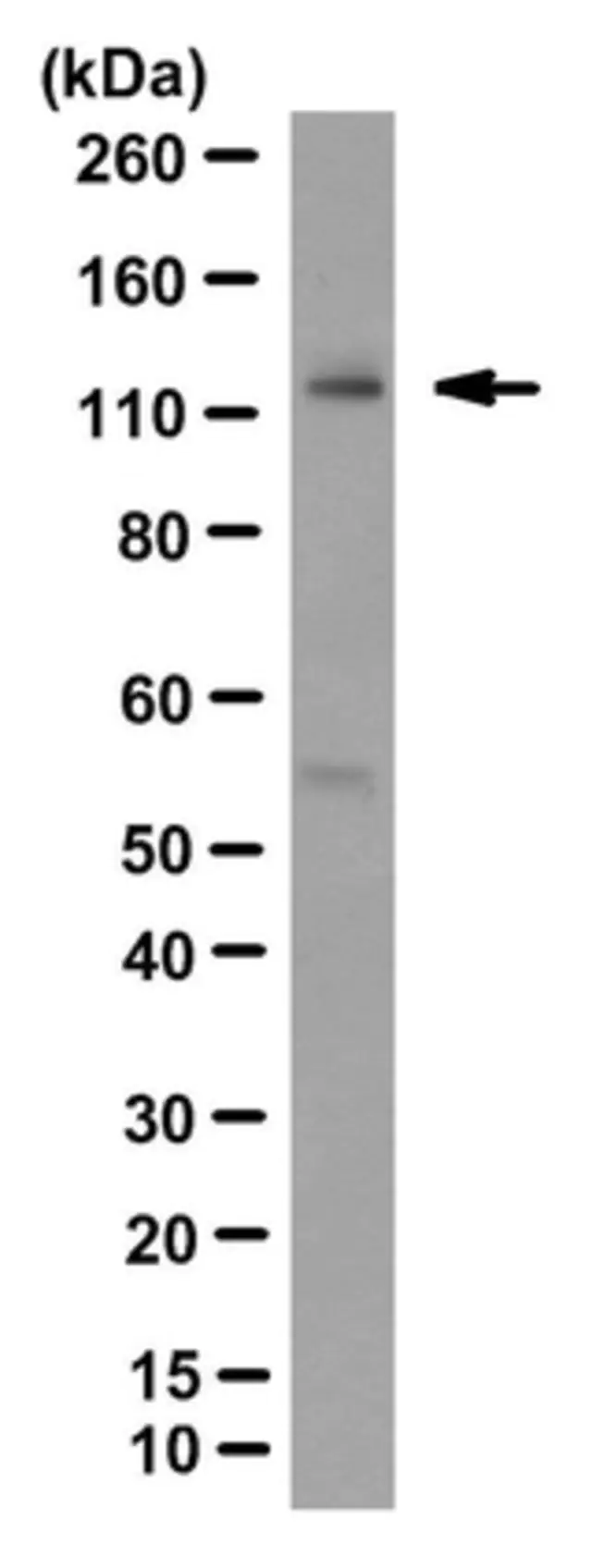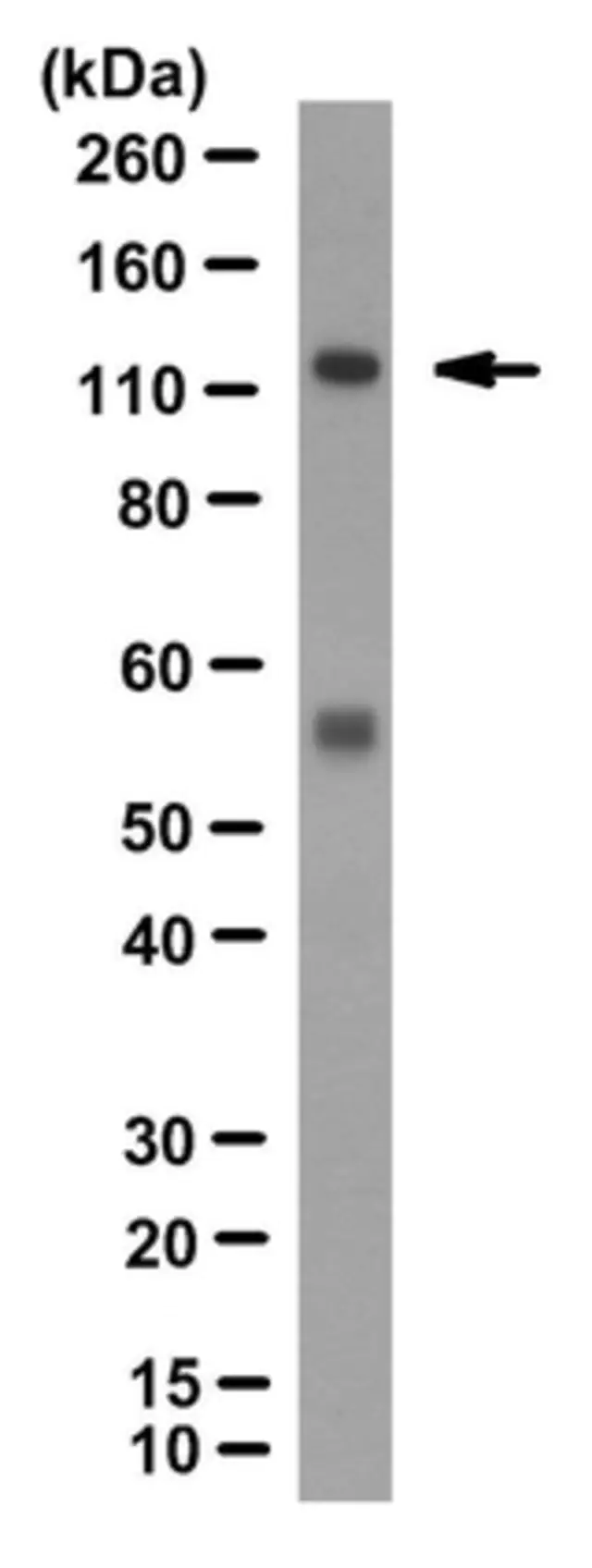您的位置:首页 > 产品中心 > Anti-SREBP-2 Antibody, clone 22D5
Anti-SREBP-2 Antibody, clone 22D5

产品别名
Anti-SREBP-2 Antibody, clone 22D5
Sterol regulatory element-binding protein 2, SREBP2, Sterol regulatory element-binding transcription factor 2
基本信息
| eCl@ss | 32160702 |
| General description【一般描述】 | Sterol regulatory element-binding protein 2 (UniProt: Q3U1N2; also known as SREBP-2, Sterol regulatory element-binding transcription factor 2) is encoded by the Srebf2 (also known as Srebp2) gene (Gene ID: 20788) in murine species. SREBPs are a family of transcription factors that regulate lipid homeostasis by controlling the expression of a range of enzymes that are required for endogenous cholesterol, fatty acid, triacylglycerol, and phospholipid synthesis. The three SREBP isoforms known as, SREBP-1a, SREBP-1c, and SREBP-2, have different roles in lipid synthesis. SREBP-1 and SREBP-2 proteins share 47% of homology. SREBP-2 is mainly involved in cholesterol synthesis and SREBP-1c is mainly involved in fatty acid synthesis and insulin induced glucose metabolism and SREBP-1a isoform is involved in both of these pathways. SREBPs are synthetized as inactive precursor proteins that are bound to the endoplasmic reticulum membranes and upon activation, the precursor is cleaved off in a two-step process to release the N-terminal active domain in the nucleus. SREBP precursors are organized into three domains - an N-terminal domain that contains the transactivation domain, a region rich in serine and proline, and the bHLH-LZ region for DNA binding and dimerization. Sterols are shown to inhibit the cleavage of the precursor protein and the mature nuclear form is rapidly catabolized, thereby reducing transcription. It regulates transcription of the LDL receptor gene as well as the cholesterol and to a lesser degree the fatty acid synthesis pathway. It binds the sterol regulatory element 1 (SRE-1) (5′-ATCACCCCAC-3′) found in the flanking region of the LDRL and HMG-CoA synthase genes. The hepatic overexpression of SREBP-2 isoform in mice causes a preferential induction of genes involved in cholesterol biosynthesis. (Ref.: Eberle, D et al. (2004) Biochimie 86(11); 839-48). |
| Specificity【特异性】 | Clone 22D5 specifically detected Sterol regulatory element-binding protein 2. It targets an epitope within the 219 amino acids from the N-terminal region. |
| Immunogen【免疫原】 | His-tagged recombinant fragment corresponding to 219 amino acids from the N-terminal region of murine Sterol regulatory element-binding protein 2. |
| Application【应用】 | Western Blotting Analysis: A 1:1,000 dilution from a representative lot detected SREBP-2 in 10 µg of HEK293 and HeLa cell lysates. Western Blotting Analysis: A representative lot detected SREBP-2 in Western Blotting applications (McFarlane, M.R., et. al. (2015). J Lipid Res. 56(8):1560-71). Research Category Signaling Anti-SREBP-2, clone 22D5, Cat. No. MAB1988, a rabbit monoclonal antibody detects murine SREBP-2 by Western Blotting. |
| Quality【质量】 | Evaluated by Western Blotting in HepG2 cell lysate. Western Blotting Analysis: A 1:1,000 dilution of this antibody detected SREBP-2 in 10 µg of HepG2 cell lysate. |
| Physical form【外形】 | Format: Unpurified Unpurified Rabbit monoclonal antibody in cell culture supernatant without azide. |
| Other Notes【其他说明】 | Concentration: Please refer to lot specific datasheet. |
产品性质
| biological source【生物来源】 | rabbit |
| Quality Level【质量水平】 | 100 |
| antibody form【抗体形式】 | unpurified |
| antibody product type | primary antibodies |
| clone【克隆】 | 22D5, monoclonal |
| species reactivity | human, mouse |
| technique(s) | western blot: suitable |
| isotype【同位素/亚型】 | IgG |
| NCBI accession no.【NCBI登记号】 | NP_150087.1 |
| UniProt accession no.【UniProt登记号】 | Q3U1N2 |
| shipped in【运输】 | ambient |
产品说明
| Target description【目标描述】 | ~122 kDa observed; 122.91 kDa calculated. ncharacterized bands may be observed in some lysate(s). |
| Storage and Stability【储存及稳定性】 | Stable for 1 year at -20°C from date of receipt. Handling Recommendations: Upon receipt and prior to removing the cap, centrifuge the vial and gently mix the solution. Aliquot into microcentrifuge tubes and store at -20°C. Avoid repeated freeze/thaw cycles, which may damage IgG and affect product performance. |
| Disclaimer【免责声明】 | Unless otherwise stated in our catalog or other company documentation accompanying the product(s), our products are intended for research use only and are not to be used for any other purpose, which includes but is not limited to, unauthorized commercial uses, in vitro diagnostic uses, ex vivo or in vivo therapeutic uses or any type of consumption or application to humans or animals. |
安全信息
| Storage Class Code【储存分类代码】 | 10 - Combustible liquids |
| WGK | WGK 1 |






